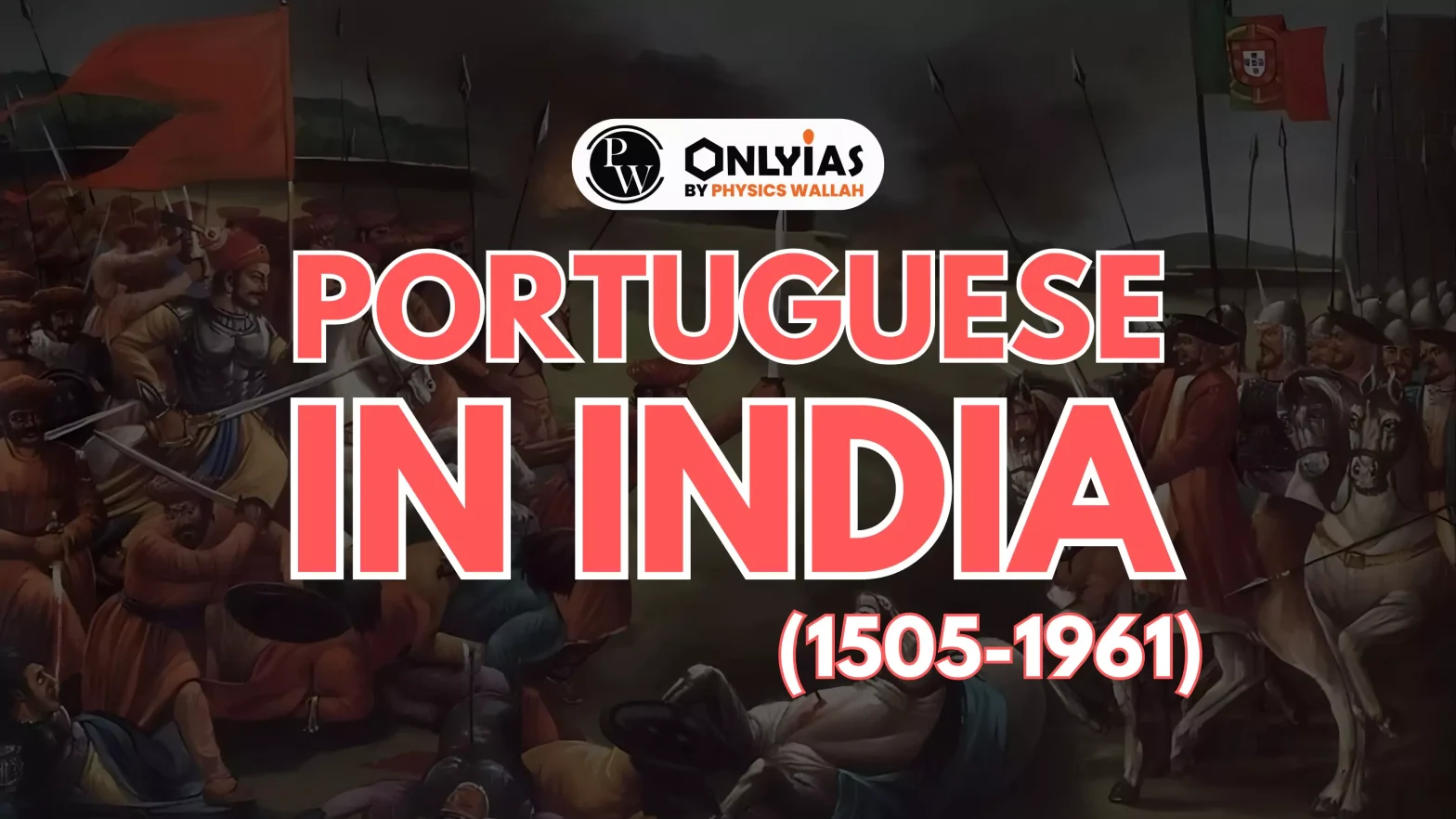
Portuguese India was a colonial state within the Indian Subcontinent from 1505 to 1961. The Portuguese established trading posts and forts along the Indian coastline, with a significant presence in Goa, Daman, Diu, Dadra and Nagar Haveli. Their influence was limited to their colonies, unlike the English who expanded their control over larger parts of India. In 1961, the Indian government annexed the Portuguese territories, marking the end of Portuguese rule in India. These territories were integrated into the newly independent Indian state.
Following factors were responsible for arrival and consolidation of Portuguese power in India:
|
#PW-OnlyIAS Edge |
|
Liberation of Goa (1961)
|
Portuguese India, spanning from 1505 to 1961, left a significant impact on the Indian Subcontinent. However following were major factors responsible for decline of Portuguese power in India:
|
Portuguese in India: A Timeline |
|
|
Year |
Event |
|
1498 |
Vasco-da-Gama lands at Calicut and is received by the Zamorins |
|
1503 |
The first Portuguese fort was established at Cochin (now Kochi) |
|
1505 |
The second Portuguese fort was built at Cannanore |
|
1509 |
Portuguese defeated combined fleet at the Battle of Diu |
|
1510 |
The capture of Goa from the Bijapur Sultanate by Alfonso Albuquerque |
|
1530 |
Goa declared as the capital of Portuguese India |
|
1535 |
Diu completely subjugated by the Portuguese |
|
1539 |
Portuguese successfully defend Diu against the Ottoman-Mamluk fleet |
|
1559 |
Daman was captured by the Portuguese |
|
1596 |
Dutch establish a monopoly in the spice trade, displacing Portuguese |
|
1612 |
Surat lost to the English |
|
1661 |
Bombay handed over to the English |
|
1663 |
Portuguese lose all their forts on the Malabar Coast to the Dutch |
|
1779 |
Acquisition of Dadra and Nagar Haveli |
|
1843 |
Panjim becomes the capital of Portuguese India |
|
1961 |
The Portuguese lose Goa to the Indian army during the liberation operation |
Portuguese India, spanning from 1505 to 1961, left a significant impact on the Indian Subcontinent. Their establishment of trading posts, notably in Goa, and their dominance along the coast shaped regional history. The decline of Portuguese rule came with protests, international pressure, and the Indian military invasion in 1961. The liberation of Goa marked the end of Portuguese colonialism, leading to improved relations between India and Portugal. The Portuguese legacy in India is evident in the cultural influences that endure to this day.
<div class="new-fform">
</div>
